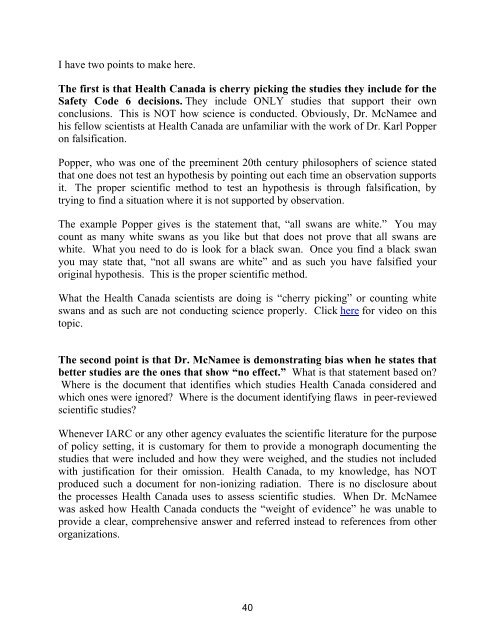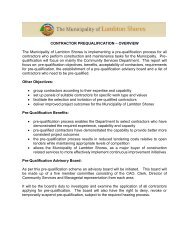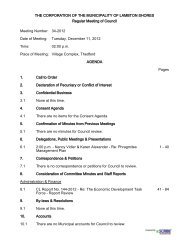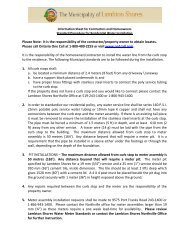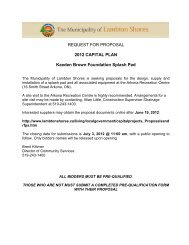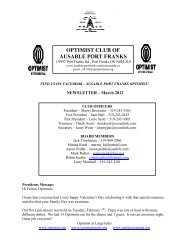View - The Municipality of Lambton Shores
View - The Municipality of Lambton Shores
View - The Municipality of Lambton Shores
You also want an ePaper? Increase the reach of your titles
YUMPU automatically turns print PDFs into web optimized ePapers that Google loves.
I have two points to make here.<br />
<strong>The</strong> first is that Health Canada is cherry picking the studies they include for the<br />
Safety Code 6 decisions. <strong>The</strong>y include ONLY studies that support their own<br />
conclusions. This is NOT how science is conducted. Obviously, Dr. McNamee and<br />
his fellow scientists at Health Canada are unfamiliar with the work <strong>of</strong> Dr. Karl Popper<br />
on falsification.<br />
Popper, who was one <strong>of</strong> the preeminent 20th century philosophers <strong>of</strong> science stated<br />
that one does not test an hypothesis by pointing out each time an observation supports<br />
it. <strong>The</strong> proper scientific method to test an hypothesis is through falsification, by<br />
trying to find a situation where it is not supported by observation.<br />
<strong>The</strong> example Popper gives is the statement that, “all swans are white.” You may<br />
count as many white swans as you like but that does not prove that all swans are<br />
white. What you need to do is look for a black swan. Once you find a black swan<br />
you may state that, “not all swans are white” and as such you have falsified your<br />
original hypothesis. This is the proper scientific method.<br />
What the Health Canada scientists are doing is “cherry picking” or counting white<br />
swans and as such are not conducting science properly. Click here for video on this<br />
topic.<br />
<strong>The</strong> second point is that Dr. McNamee is demonstrating bias when he states that<br />
better studies are the ones that show “no effect.” What is that statement based on?<br />
Where is the document that identifies which studies Health Canada considered and<br />
which ones were ignored? Where is the document identifying flaws in peer-reviewed<br />
scientific studies?<br />
Whenever IARC or any other agency evaluates the scientific literature for the purpose<br />
<strong>of</strong> policy setting, it is customary for them to provide a monograph documenting the<br />
studies that were included and how they were weighed, and the studies not included<br />
with justification for their omission. Health Canada, to my knowledge, has NOT<br />
produced such a document for non-ionizing radiation. <strong>The</strong>re is no disclosure about<br />
the processes Health Canada uses to assess scientific studies. When Dr. McNamee<br />
was asked how Health Canada conducts the “weight <strong>of</strong> evidence” he was unable to<br />
provide a clear, comprehensive answer and referred instead to references from other<br />
organizations.<br />
40


